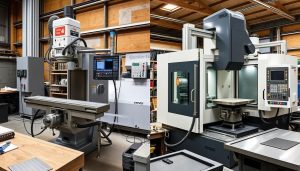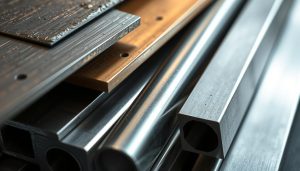Washers are small, but essential hardware components found in a wide range of applications, from automotive and construction to electronics and furniture assembly. These simple yet crucial pieces play a vital role in ensuring secure connections, distributing pressure, and preventing damage to surrounding materials. In this article, we’ll explore the various types of washers, their specific functions, and how to choose the right ones for your project.
Common Types of Washers
When it comes to fastener assemblies, understanding the different types of washers and their unique properties is crucial. Washers are essential components that provide a secure and stable connection, preventing loosening and damage. In this section, we’ll explore the most common washer types, including plain, lock, spring, and flat washers, and discuss their applications in various industries.
Plain Washers
Plain washers, also known as flat washers, are the simplest and most basic type of washer. They are designed to distribute the load evenly, preventing the nut or bolt from digging into the surface. Plain washers are commonly used in a wide range of applications, from construction to automotive, and are available in a variety of materials, such as steel, stainless steel, and aluminum.
Lock Washers
Lock washers are designed to prevent the loosening of a nut or bolt. They feature a serrated or spring-like design that creates friction, effectively locking the fastener in place. Lock washers are particularly useful in applications where there is a risk of vibration or movement, such as in machinery or heavy-duty equipment.
Spring Washers
Spring washers, also referred to as split washers, are coiled washers that provide a spring-like action. When compressed, they create a force that helps to maintain the tension of the fastener, resisting loosening. Spring washers are often used in applications where there is a need for a constant, low-level of tension, such as in electrical connections or in automotive suspension systems.
Flat Washers
Flat washers are a type of plain washer that provide a flat bearing surface for a nut or bolt. They help to distribute the load, prevent damage to the surface, and improve the overall appearance of the assembly. Flat washers are commonly used in a variety of applications, from construction to furniture assembly, and are available in a range of materials to suit different requirements.
| Washer Type | Key Features | Common Applications |
|---|---|---|
| Plain Washers | – Distribute load evenly – Basic design |
– Construction – Automotive – General fastener assemblies |
| Lock Washers | – Prevent loosening – Serrated or spring-like design |
– Machinery – Heavy-duty equipment – Applications with vibration |
| Spring Washers | – Provide spring-like action – Maintain tension |
– Electrical connections – Automotive suspension – Applications requiring constant tension |
| Flat Washers | – Distribute load evenly – Improve appearance |
– Construction – Furniture assembly – General fastener applications |
Understanding the characteristics and applications of these common washer types can help you choose the right solution for your specific project or assembly needs, ensuring a secure and reliable fastener connection.
Specialized Washers
In the world of fasteners, certain applications require specialized washers that go beyond the standard plain, lock, or spring varieties. Two such specialized washers that deserve attention are sealing washers and fender washers.
Sealing Washers
Sealing washers, also known as gasket washers, are designed to create a tight, watertight seal around a fastener. These specialized sealing washers are commonly used in plumbing, HVAC, and other industries where preventing leaks is crucial. They feature a compressible material, such as rubber or neoprene, that deforms under the tightening of the fastener, effectively sealing the joint and preventing fluid or gas from escaping.
Fender Washers
Fender washers, on the other hand, are larger in diameter than traditional washers, providing a larger bearing surface area. This makes them ideal for distributing the load over a broader area, reducing the risk of the fastener pulling through the material or causing damage. Fender washers are commonly used in construction, automotive, and specialized hardware applications where additional support and reinforcement are required.
Both sealing washers and fender washers are examples of the innovative specialized hardware solutions available to meet the unique demands of various industries and applications. By understanding the specific needs of your project, you can choose the right washer to ensure a secure, reliable, and long-lasting fastening solution.

| Washer Type | Key Features | Common Applications |
|---|---|---|
| Sealing Washers | – Compressible material (rubber, neoprene) creates a tight seal – Prevents fluid or gas leaks |
– Plumbing – HVAC – Automotive |
| Fender Washers | – Larger diameter distributes load over a broader area – Reduces risk of fastener pulling through material |
– Construction – Automotive – Machinery |
Choosing the Right Washer for Your Project
When it comes to selecting the perfect washer for your project, the choice can be daunting. From stainless steel washers to zinc washers, the range of materials and their unique properties can significantly impact the strength and durability of your application. Let’s explore the key considerations to ensure you make the right decision.
Material Considerations
The material of your washer plays a crucial role in its performance and longevity. Stainless steel washers are a popular choice for their corrosion resistance and long-lasting durability, making them suitable for a wide range of applications. Zinc washers, on the other hand, offer excellent resistance to rust and weathering, making them an ideal option for outdoor projects.
Strength and Durability Based on Application
The strength and durability of your washer should be tailored to the specific demands of your project. For high-stress applications, such as heavy machinery or construction, you’ll want to prioritize washer durability to ensure a secure and reliable connection. Conversely, for more delicate applications, a lighter, more flexible washer might be the better choice.
To help you make an informed decision, consider the following factors:
- The anticipated load and stress on the washer
- The environment in which the washer will be used (e.g., outdoor, high-moisture, high-heat)
- The long-term maintenance and replacement requirements
By carefully evaluating the material options and the specific needs of your project, you can ensure that you select the perfect washer to deliver the strength, durability, and performance you require.

Why Choose Shixinproto for Washer Manufacturing
Shixinproto, a leading provider of high-quality hardware solutions, stands out as the preferred choice for all your washer manufacturing needs. With decades of experience and a steadfast commitment to excellence, Shixinproto has established itself as a trusted industry leader, delivering custom washers that cater to diverse applications.
At the heart of Shixinproto’s success lies a relentless focus on quality and innovation. Our state-of-the-art production facilities are equipped with advanced machinery and stringent quality control measures, ensuring that every washer that leaves our doors meets the highest standards of precision and durability. Whether you require washer manufacturing, custom washers, or any other quality hardware production, Shixinproto is the partner you can trust.
Collaborating with Shixinproto means gaining access to a wealth of expertise and a customer-centric approach. Our team of skilled engineers and technicians work closely with clients to understand their unique requirements, providing tailored solutions that exceed expectations. From material selection to design optimization, we leave no stone unturned to deliver washers that are not only functional but also built to withstand the demands of your specific industry.





